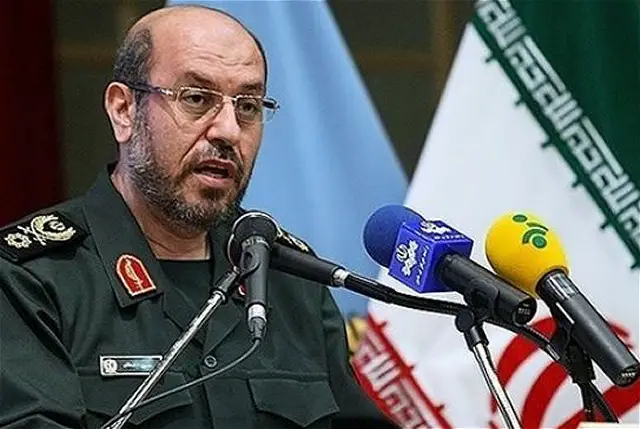Breaking news
Iran would like to increase the defense relations and cooperation between Tehran and Moscow 2910133.
| a | |||
Defence & Security News - Iran |
|||
| Tuesday, October 29, 2013 10:29 AM | |||
Iran
would like to increase the defense relations and cooperation between Tehran
and Moscow. |
|||
| Iranian
Defense Minister Brigadier General Hossein Dehqan underlined the necessity
for the development of defense relations and cooperation between Tehran
and Moscow, calling it as an important contributor to the strengthening
of stability and security in the region and the world. Dehqan made the
remarks on Tuesday, October 29, 2013, in response to a message by his
Russian counterpart Sergei Shoigu who had felicitated him on his appointment
as Iran’s new defense minister. |
|||
 Iranian Defense Minister Brigadier General Hossein Dehqan |
|||
| In his message, Dehqan stressed Russia’s special position in Iran’s foreign policy, and said continued defense cooperation between the two countries is a major contributor to consolidation of regional and global stability and security. Shoigu had also in his message underscored Russia’s willingness to expand friendly relations with Iran in various defense sectors. In a relevant event earlier this month, Commander of Iran’s Khatam ol-Anbia Air Defense Base Brigadier General Farzad Esmayeeli and Russian Air Force Commander Lieutenant General Viktor Bondarev in a meeting in Tehran discussed mutual cooperation in defense fields. During the meeting in Tehran, Brigadier General Esmayeeli and Lieutenant Bondarev also discussed exchange of information, air defense techniques, electronic and radar as well as missile systems. In 2007, Iran signed a contract worth $800mln to buy five Russian S-300 missile defense systems. But the deal was scrapped in 2010 by the then-Russian President Dmitry Medvedev, who was unilaterally expanding on sanctions against Iran imposed by the UN Security Council. Iran filed a $4bln lawsuit against Russia in the international arbitration court in Geneva, which is currently pending review. Moscow has struggled to have the lawsuit dropped, including by offering the Tor anti-aircraft systems as replacement, media reported in August, adding that the offer was rejected by Tehran. The Antey-2500, however, may be a better solution. The system does not formally fall under the existing sanctions against Iran while still being useful for the Middle-Eastern country. While the S-300 was developed for the use by missile defense forces, the Antei-2500 was specifically tailored for the needs of ground forces, which could also be an advantage for Iran, known for its large land force. The S-300 is a series of Russian long range surface-to-air missile systems produced by NPO Almaz, all based on the initial S-300P version. The S-300 system was developed to defend against aircraft and cruise missiles for the Soviet Air Defense Forces. Subsequent variations were developed to intercept ballistic missiles. The S-300 system was first deployed by the Soviet Union in 1979, designed for the air defense of large industrial and administrative facilities, military bases, and control of airspace against enemy strike aircraft. |
|||



















